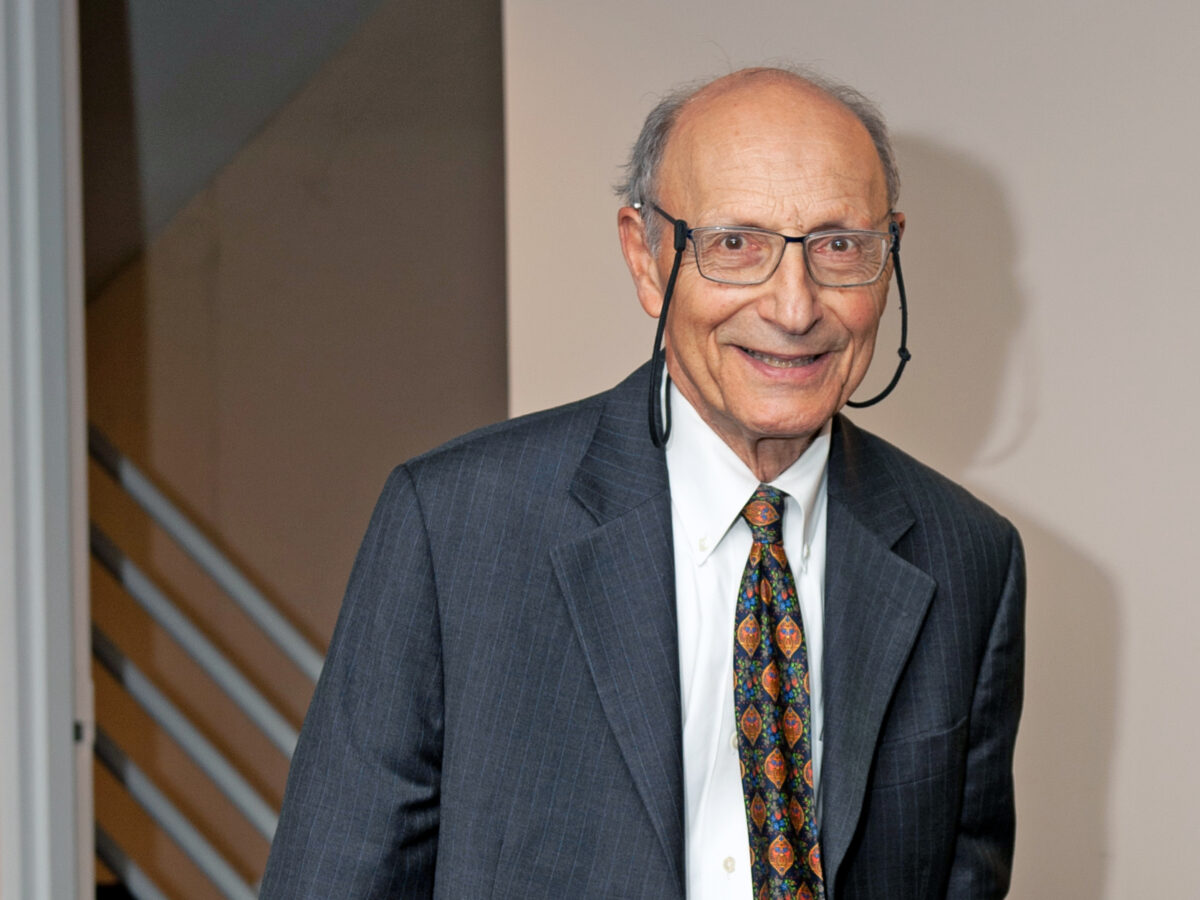Earl Silbert

History will likely remember Earl J. Silbert ’53 as the lead Watergate prosecutor, the man who faced G. Gordon Liddy in court. But to a select group of people, Silbert will forever be a tutor and academic cheerleader, a friend and supporter — even a jaw at which to aim a right cross.
Last month, Silbert was recognized for that service in a special tribute from one grateful beneficiary.
“Earl’s impact on The Fishing School is immeasurable,” says Leo Givs, the executive director of the nonprofit that provides academic after-school and summer programs for elementary and middle-school youth from underserved communities in Washington, D.C. “He has worked tirelessly to not only ensure the ongoing success of our organization, but to expand our reach in the communities we aim to serve,” Givs says. Silbert has been a Fishing School board member and chair for more than two decades. It was a role he fell into when he signed up to take a course at the Servant Leadership School in Washington’s Adams Morgan neighborhood during the late 1980s at the urging of his wife, Pat. Silbert doesn’t remember anything about the course, but he does know it’s where he befriended Tom Lewis, a fellow student and retired police officer who had just opened a center for underprivileged children on a block of Washington then known as the “worst street in America.”
Lewis invited Silbert to take a look at the center, which would later evolve into The Fishing School, its name inspired by the adage “Give a man a fish, feed him for a day; teach a man to fish, feed him for a lifetime.” Silbert, who says his time working in the U.S. Attorney’s office took him to some rough parts of the city, was alarmed by the center’s location. But once inside the building, he found a peaceful tableau: children reading, working on computers, enjoying hot meals and being attended to by a caring staff and volunteers. He signed up on the spot to help however he could.
Silbert has volunteered his time since his undergraduate days at Harvard, first helping at a teen recreation program in a settlement house in Boston’s South End. “One was a boxing class — I had to make sure I didn’t get hit too hard,” he says with a laugh. “We also did a cooking class. We made fudge — it was the hardest fudge anyone ever saw, but we had a good time.”
Ten years later he volunteered to tutor in a Washington housing project, and was assigned to a 12-year-old boy who couldn’t write his own middle name. “I said to him, ‘I don’t know how much we’re going to learn this year. We’ll give it a try, but one thing that’s for sure is you’re going to learn how to spell your middle name,’” Silbert says. He spent five years tutoring in that housing project: “You don’t know how successful you were, but you do your best.”
By then, Silbert’s career had begun its arc; he would be named U.S. Attorney in 1974, a tenure that was indelibly marked by his role as lead Watergate prosecutor. In 1979, he entered private practice, where he has remained, focusing largely on white-collar crime. In 2009, the Council for Court Excellence (CCE) honored Silbert with the Justice Potter Stewart Award for his work to improve the judicial system; in 2012, the National Law Journal listed him among its Champions and Visionaries award recipients. The CCE has a three-year fellowship program named for Silbert.
Still, Silbert turns the conversation toward his daughters, one a writer, the other an English professor. He enthuses about The Fishing School’s new home, and shares a draft of comments he delivered at the event honoring him. They focused primarily on the achievements of others, especially Tom Lewis.
“He could get a lot of people to participate with him in this work,” Silbert says. “And I was one of them.”
— Sarah Zobel
Editor’s note: This article first appeared in the fall 2018 issue of The Exeter Bulletin.